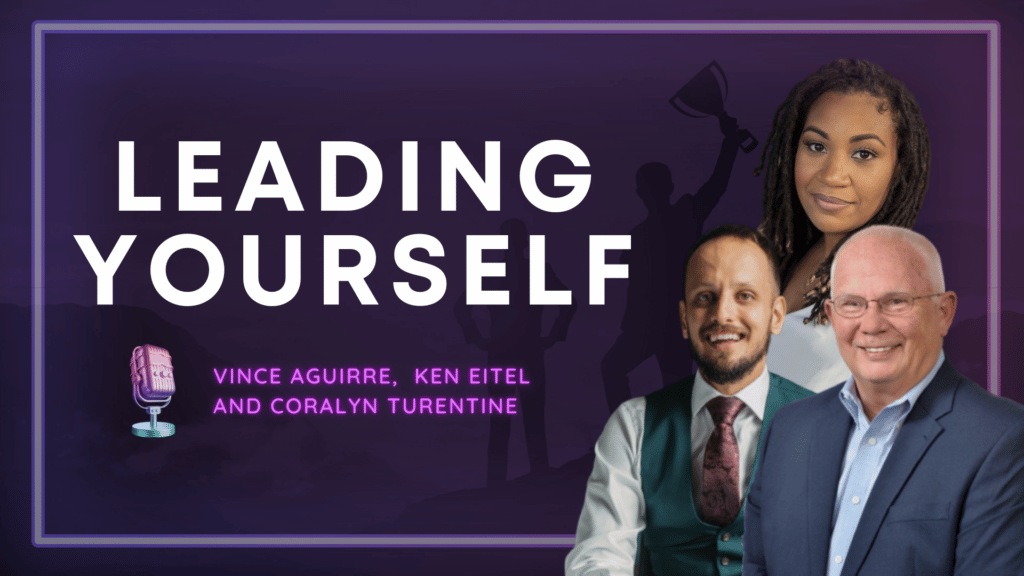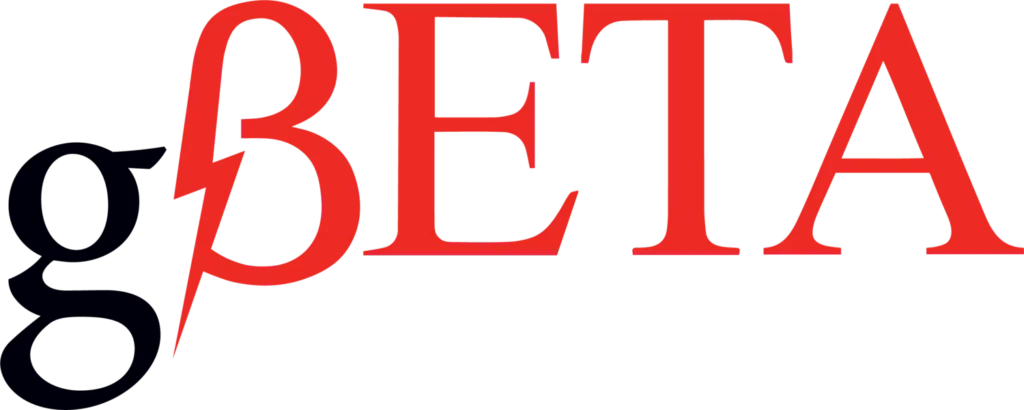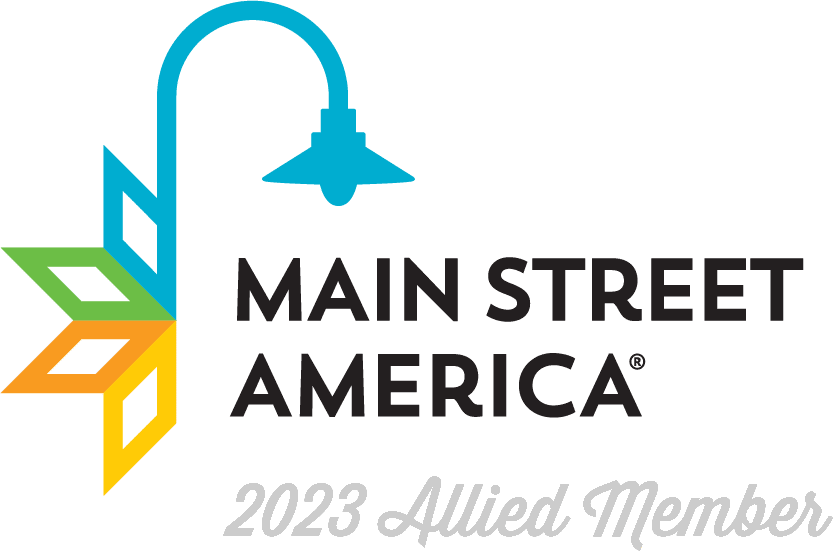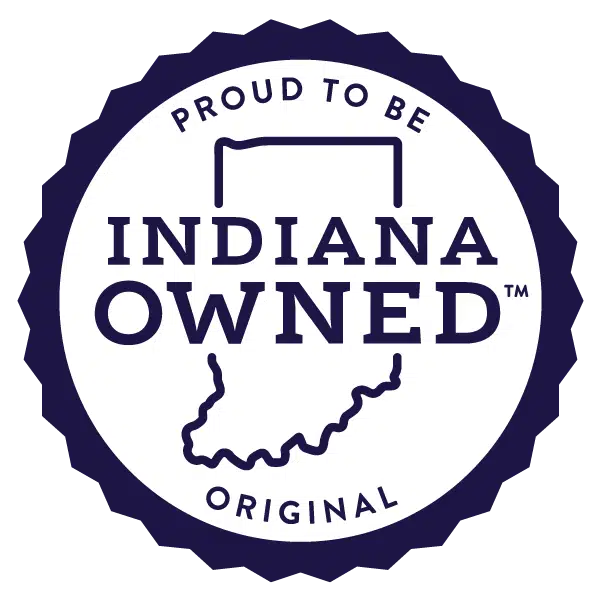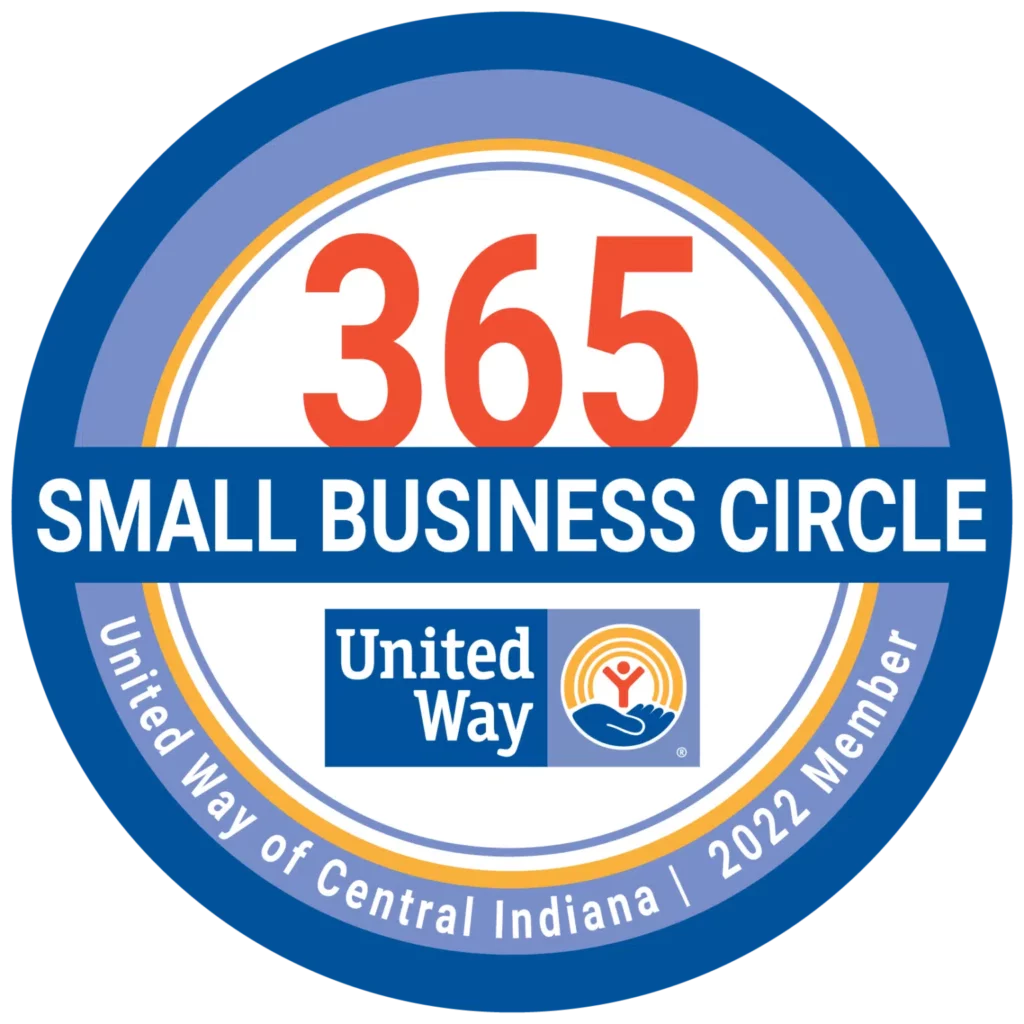Watch The On-Demand Video Or Read The Transcript Below
Today, it's a constant struggle to find and retain skilled and dedicated employees. What are the values and benefits that can create loyalty? How can a business build and grow a stable workforce? Paul Jedele, of Jedele Enterprises, a McDonald's restaurant franchise owner, joins Ken and Aaron for a discussion of his restaurant's methods, processes, and programs to hire and develop productive and engaged employees.
Listen To The Podcast
Check out our other Small Business Squad podcasts HERE!
Transcript
- 3:43 The Challenge of Hiring People For Your Business
- 5:59 Creative Ways To Hire People
- 10:14 Good Questions To Ask When Hiring People
- 16:46 Values To Offer To Help The Employees Grow
- 22:21 How To Identify Future Opportunities
- 25:29 Know What Makes Your Employees Happy & Unhappy
- 29:20 How To Deal With Employees Who Constantly Makes Excuses
- 34:11 Seeing Your Employees Grow Is Very Rewarding
Ken Eitel: Good afternoon, and welcome to another beyond the launch podcast. We've done a series of these and you can find those on YouTube. But today, we welcome Paul Jedele and Paul Jedele is a franchise owner of McDonald's, a couple of McDonald's actually in the Greencastle area, and we just welcome him and in the background that he has, and, Paul, do you want to talk a little bit about your journey to get you where you are?
Paul Jedele: Sure! Thanks for having me Ken pretty humbling, honestly, but so I actually got involved because my dad was a franchisee. My dad was with McDonald's for almost 50 years and he just retired in December, my brother and I have had the opportunity to buy restaurants off of him. My personal journey is 10 years ago in August, I said, Hey, Dad, I'm there's McDonald's saying actually, that's kind of cool. Can I get in and he said sure. And he started me off as a crew person at the Greencastle McDonald's, taking orders presenting food. I remember going home one night and literally crying to dad saying I can't present food at McDonald's. How on earth am I going to own one I just got in trouble with my shift manager for not doing a good work, I'm a 35 year old man and not doing this right anyways, move through the ranks became a shift manager then supervised restaurants McDonald's has a very in depth rigorous program to become approved to be a franchisee I've been approved as a as a franchisee for seven years and have slowly been buying restaurants off my dad just like my brother has as well. So that's the Paul McDonald's history in a quick nutshell.
Ken: Yeah, and of course, you know, I've known you most of your life. And this is not a storytelling situation. So we won't do some of that. But you know, occasionally though, Paul, and I have been in joint mock interviews with middle school students, and I think high school students as well. Here in the in the community. And over that period of time, he's, I've just listened to the way he asked questions that might be part of an interview process. And then other times I've been in programs with he and his dad both and they've talked about the things that they do to try and serve their employees actually make them better, helped them be a value, not just to their franchises, but also to the community, as well as grow their sales. And I thought he would be just a wonderful guest for us today. And so I think he'll have a lot to share that will be interesting to those of you who are watching and may hear this podcast sometime in the future. So Paul, tell me a little bit, you know, it's a constant struggle today. We hear it all the time, trying to hire good staff, trying to find those individuals who can work for you and be it can be fulfilled, but also helped fulfill the goals of the business itself. I know over the last, it seems to me that the struggles of hiring, while maybe not as difficult as they are today, have been with us for several years that we've seen a workforce that's shrinking and has different skills. What What's your observation of that? What's been your experience over your maybe 10 years working with within McDonald's in terms of this way, and then how's it changed in the last couple of years after the pandemic?
03:43 The Challenge of Hiring People For Your Business
Paul: Since even starting with McDonald's 10 years ago, hiring and retention has been a challenge. It's challenging to be an entry level employer to begin with and fighting stigmas. But over the last 10 years, you have a constant turnover of people because they use you as a springboard and that's actually part of my business model as I am a springboard. I try to get people to come in, teach him some work ethic, and I want some people to move on. But what's changed since the pandemic which has been really unique is one you have so many more people hiring and you see more advertising for hiring. I think that one people have gotten more creative with it. And I've seen other people do it, but now there's a much bigger need as the job pool or the employee pool is shrinking. But I've also found that people don't want to work. I think that as a result of the pandemic, we have found that people's priorities have changed, or and with the increasing prevalence of social media, I think that people also have fallen into a mentality of things should come in without effort, and I feel like that's kind of a current job struggle that we have with our labor force. Now, obviously, there are so many outstanding people out there that work extremely hard, and I think have it right. But this is kind of one of the things that we're realizing and talk with other McDonald's owners and even their business owners, that you're having a reduction in people's ability to use grit, and loyalty to get ahead and to progress themselves in their career. They just, it's almost more of like an entitled society. And that's probably our biggest struggle today and what I've seen it evolve in the last 10 years.
Ken: So I know you put hiring opportunities on your site or on your marquee. But it as you just mentioned, it takes a lot of creativity, to find those good, good people today. Or maybe just people. But tell me a little bit or tell us a little bit about what you do other than just put a sign up outside.
05:59 Creative Ways To Hire People
Paul: So aside from just the sign up side, then we use all of our different, we call it retail windows, so I'll have it on my menu boards, I have it on the inside menu boards, I'll even buy feather banners. So that's still all exterior. But internally, we'll hand out what we call bag stuffers. So we'll print 1000s and 1000s of pieces of you know, half sheet of eight by eight and a half by 11. Sharing what our rates are, put an application on it, save it in the bag with a Big Mac, and handed out to the customer knowing that a customer themselves might not apply. But they might see that and say oh, my kid might need a job or who I knew this person might need a job. And we talked about our benefits on that bag stuffer. We use Facebook advertising a lot like you can spend very little like 10 bucks and boost a hiring message via Facebook that then reaches outside of your restaurants was a different avenue, we spend money on like Indeed, and we have McDonald's actually helps pay for a program called MC hire which it feeds into various different, hiring and advertising campaigns. One of the most unique ones that we've done is we'll actually have a person in the back cache, hand the flyer directly to customers to try to make sure they actually see the flyer showing that there's a job application. I mean, sometimes they're more desperate measures, but we kind of try to insert all those different tactics all at different times, or sometimes all at once trying to drum up conversation. Advertising rate, we've changed up different ways that we've been talking about rate rather than saying up to a certain dollar amount for a wage, we'll talk about what that yearly income might be. So advertising that $15 An hour actually is almost $35,000 A year start today, McDonald's to make $35,000 a year, that's actually it just hits a different mentality. So we we tried just different chat tactics to try to create new news or hit a different person's thought process.
Ken: So are you hiring, just to start with entry level or basic skills? Or are you also hiring at the, what I'll call the management level, I know you and your brother and your dad all started with making french fries, so to speak,
Paul: We started as crew will hire in people for higher level positions. We're always looking for managers, but most people come in as a crew person, just and the entry level position that's how Dad, Tim and I all got started. But we do hire people off the street with experience that can prove that they have manager ability. Now quite honestly, as a manager, you're going to do all of those entry level positions like I was just in a restaurant yesterday and I was working fries. I love it. But you know, you're never above the actual job role. But if you have leadership or you in an interview, you can interview to a way that I believe that you're worth hiring it at a higher rate, I'll take the risk on you and say I'll pay you more and hope that your leadership and I can train you into I call it ‘McDonalysing' you, but I hope that I can ‘McDonalize' you and then use your leadership to help run my restaurants. So we're always, there is no limit on what we're hiring for. I'll talk to anyone about anything.
Ken: So I know in the mock interviews that we've done, I've either sat next year across the room and then in those programs I've heard other stories that I talked about, but tell me a little bit about your interview process and what maybe are some of the your favorite questions as as well as, what kind of questions do you get from the people you interview? And how do you get that feeling that this person will work in your restaurant?
10:19 Good Questions To Ask When Hiring People
Paul: As far as the interview process, I actually will do an interview, I'll change my tactic based upon who I get walking in. A lot of it, I've just read right off the bat with a handshake and the eye contact to decide how long the end the interviews even gonna last right from the beginning. But some of the questions that I like to ask that kind of open up the doors first, like, how did you hear about me? Then I do like asking, hey, what's your favorite meal at McDonald's? If they have no idea what McDonald's serves, usually they're not going to be a good employee, because they don't understand. Because if you've not been a customer, you haven't actually seen what it's like, what the operation is, if you don't know what the operation is, those people that don't use McDonald's as a customer turn out not to be employees, because they didn't even realize how fast paced the environment was and say, well, I'm out. But then one of the things I like to do to get the best read on someone's character, especially a young adult, is can you describe to me what dependability is looking for them to be able to share? Some self responsibility? And I'll ask the question in a couple of different ways. Such as, are you a self starter, describe what a self starter is? How are you motivated? What kind of follow up do you need in your everyday life? And I'll ask those questions, because you can learn a lot about a person to decide whether or not they're going to be a good job fit. And so depending on the way that they answer those questions, then you walk when you have an employee that says, hey, are you dependable? What does that mean? And they say, Well, I show up for time on for school, and then I'll go one more step with it and say, okay, do you show up on time for school? But is that because your parent gets you up? Or is that because you want to be a school for yourself? And depending on how they answer that second question, then you start knowing if you got a strong employee. It's awesome when you hear teenagers say, well, no, I set my own alarm clock. I mean, why would my parent wake me up? It's like, okay, cool, we got a good kid here versus me. And it's the same for adults, what's being on time. And if they say, eight o'clock and you're scheduled at eight, well, you're already starting to learn something they that they find to be on time is cutting things way too close. So I would say that one of the fallacies in this conversation is, is that when there's a limited job pool, sometimes you're still making poor hires, just because you need someone to come in to the restaurant, but you will find that then you're going to just because someone didn't interview well doesn't mean that they won't get a job unfortunately, and that's a tough place. That's a stark reality of where we're at that, if you look like you might be worth taking a shot on or if you are, if you show interest in care, you might get some red flags on the interview process. But I'm more willing to take a chance, I'm still willing to take a chance on you.
Ken: So is your hourly rate, the major motivator, the major question you get, or you get other questions about positions and what the job entails from the perspective employee?
Paul: Most questions are, what's the rate? The other high questions are what or can I get promoted? Or what is the what is the ladder look like? Or can I grow here? Some other ones are about benefits as well. But typically, especially for an entry level employer, most of it's just tied to the rate.
Ken: So that kind of segues into the next question that's been kind of on our list. And, and that is, once you've made that hire, however you feel good about it. What's been your onboarding process to try and bring that person what you just called up the ladder to where they will feel served, as well as you can begin to see building value in in that employee.
Paul: So we try to have a pretty formalized orientation process. So if I was to interview someone and hire a man, and it's really not even me, I've got managers that are doing it at each at each location. Then they're going to invite him back for an orientation in that orientation they're going to go through a standardized presentation, we built out a PowerPoint presentation where it talks about our benefits that welcomes under the organization, there's actually a welcome video that we created where Tim, Dad and myself are all talking. And being able to share to them the new employee who we are and share a little bit about our story to help create that awareness of job progression, and then also utilizing the general manager stories at each site as well. But there's a lot of consistency with us being able to have a dedicated person at each restaurant that does all the orientation. So there's a consistency in a face that's been trained to be able to provide a good first experience for any new hire. And in that process, we have them signed the our policies, do some critical food safety and safety conversations talking about OSHA and making sure that they know that there's a safe environment and also giving them the resources and contact information to reach out to Tim, myself, our operations manager in case they have any concerns at the restaurant because we know that it's important for employees to know where their avenues are to be able to have any concerns addressed if they have any.
Ken: So, of course, we all want to see loyalty. And we want to see our folks grow and become just have have better lives. But what specifically in this program that you do, first of all, what benefits are there for people that come to work? And we'll just say full time. And then let's say what values do you feel that you bring that will help those folks grow?
16:46 Values To Offer To Help The Employees Grow
Paul: Full time is a tough word, I really only have one full time person per restaurant, because full time technically a salary. Even though I have a lot of folks that are waged and working 40 plus hours, we'll go with a manager, a manager is probably the better way of being able to identify a better benefit package. And really, that's what I want. For me, I don't want a person to be a crew person for their whole life unless they're really only looking for a few hours and have very and have some limitations. But being at a manager level, were able to pay at a higher rate, my benefit packages get more significant. So I contribute to health insurance have outstanding dental vision plans. We have a profit sharing program, where based upon the profitability of the restaurant every month, I pay out a bonus if the restaurant was profitable and hit certain customer service metrics. We have a tuition assistance program, which is kind of part of the answering the question about how do we help with progression. Every employee that works 15 hours or more gets $2,500 towards any college education. And that's not just one time, as long as they're an employee and still seeking college tuition and have an active tuition bill like first semester, we will contribute up to $2,500 a year for that to help with their progression. Now, part of the thing that has helped us retain managers and we actually just did this a couple days ago, which was awesome. But we tried to bring all of our managers together for meetings where we can focus on even things beyond McDonald's. Like we got it, we went to the Prindle Institute at DePauw and had Ken and Marco speak to my team about ethical leadership. And I look at that as enriching their lives outside of just the McDonald's. I want them to take some of these learnings and some of the experiences that Tim and I tried to create, to take to their family lives because a lot of folks just through me and my role, I get to hear a lot of the drama in people's personal lives and I feel that God has placed me in a position where I'm able to help them through some of those challenges. And that's what McDonald's has to offer that people probably don't realize, maybe that's more of me being a small employer. But I care about being able to help people get ahead or help give creative solutions to problems. That just kind of comes through some of the trainings and development that we have. McDonald's itself has extremely good training programs to where we have online classes in person classes, to give them resources where I'm sending them to Indianapolis to stay a night or two and then have training from McDonald's professionals and educators to be able to give them the resources they need to be successful in their role as well. Probably went longer than you need me to there but there's just there's so many unique things that we that we do from a benefit perspective mean if someone has a spouse that works from six to three and the more six in the morning till three in the afternoon. Then they can work the dinner shift because they don't want to pay for childcare or hey, the or bye vice versa, we've got overnight shifts and or let's say someone needs to be off by 2pm we we've gotten different shifts, a lot of times it might change in the compensation. But that's one of the beauties that we have too is that we can be we're flexible employer that creates more opportunities that kind of met meet individual needs.
Ken: So I think this conversation and your, this discussion shows that the things that it's important that you do in today's marketplace, in terms of in hiring employees and building those employees. But I think it also shows how important it is to be able to use your business as a way to improve their lives. And however you want to interpret the word, I think a business properly operated and people properly cared for becomes your mission. And it can be that kind of a thing that really, learner gives long term benefit to other people. The other thing I would tell you that probably is, as much of the training tools, anything is seeing you on the french fryer. My experience is the same as yours is, if we were busy, and there needed to be thorns taken off roses, that's what you did. And so, it's those kinds of things that are as much an example of good leadership, and somebody would like to work for, as even sometimes the benefits that that you've been talking about. So let's talk specifically about your managers. I know you talked about bringing them together. But again, I think the example that that your family shows that you can work through and you can have a future in a business or franchise like McDonald's with the kind of family atmosphere that you all have. But how do you identify future opportunities? I mean, I'm going to assume that you would encourage a manager if they put yourself in a position to buy a franchise. And so how do you train somebody to have those abilities?
22:20 How To Identify Future Opportunities
Paul: It's a long road. But, and quite honestly, every general manager and I don't know if you have time for me to talk through the structure because it might help a little bit is real quick. You have Crew Person, Shift Manager, Department Manager, General Manager, that's all restaurant specific. Each restaurant only has one general manager that the head honcho of that facility that site, then I have supervisors and an operations manager, and then I'm the owner of the business of the multiple franchises. That General Manager role and for our restaurants, every single General Manager started off as a crew person too. And some of these general managers don't even have a high school diploma. But they have earned their position based upon being approachable, being able to show grit showing, leading through people just like I'm trying to say that I do as a leader, they've gotten their result and been able to prove results based upon leading other people to their own levels of excellence. But once you hit that role, there's so much that they, that I train and my operations manager trains them on business practice, on labor laws, on taxes, on building budgets, on understanding P&L's, all those resources to help you be a good business man or woman. The hard part to be able to say, Hey, you're able to own a McDonald's franchise is you need a lot of cash to get in. But at the same time, how did my dad get in there, he saved, he saved and he saved and he saved and he saved and he saved and he had an opportunity and he bought a bad, underperforming restaurant when he bought it back in 1995, which meant he could buy it for a lower dollar amount. And then he grew it. And that's kind of the same opportunity that McDonald's has for other people. But there is a lot to be said about. There's a long work history. And then there's a big financial responsibility to save. But if you want it yes, those resources just come by running the restaurant. And I would say my supervisors and Operations Manager have the opportunity to own restaurants should they want to the pieces can you be five good financial stewards early on.
Ken: Well, and I think whether there's someone that you're just hiring at an entry level, I think the ability to see that vision if they're the kind of individual that wants that and understands what I call you call it grid, I call it perseverance. Yeah, same thing, be able to move ahead. And so you know, I this as we close here, you know, you're relatively young, at least compared to me. But do you think you have more insight into the current workforce than, say somebody who maybe has had the kind of years I had in retail? And what do you see in the future, if you can even see something in the future, in terms of the workforce, and retention, and all of those kinds of things.
25:29 Know What Makes Your Employees Happy & Unhappy
Paul: I don't think that age has anything to do with a beat on the workforce, it's being in the workforce, like I know, there's operators that are older than me, much older than me, that are just as engaged and understand the workforce and what they need, as I do. But I also have operators that have younger than me that aren't in the restaurants that aren't with their employees that are very disengaged from their workforce. So for any business owner, being next, working the fries, as you just said, that's how I get to know what my employees need. That's how I get to know what makes them happy, what makes them unhappy, I get to experience the stress, I get to experience the winds, when you're involved in your business at the at the basic level, you then will understand your employees more. What do I think the future of it is? I think that people are shifting and that there is going to be such a strong emphasis on inclusion, and appreciation, that needs to be that that ego of the employee constantly needs to be stroked. And that's fine. There's nothing, I don't say that negatively, I'm just seeing that that's what people want to be part of a team where they feel like they're serving a greater good. And they want to be part of a team where they feel like they're working together. Now more than I think in the past. In the past, I feel like even hearing stories of my dad talking, when I first started, people work because they needed because they had to work. Now people are working because they want to be part of a team, they want to be something greater than themselves. So as an employer, you're going to have you have a responsibility or to be a great employer, you have to be able to create the environment to help them feel to meet some of those softer needs that I don't think have always been there.
Ken: I would agree with that.
Paul: I'd say the other thing that we're gonna have to combat is our people going to be okay, long term with the persistence game. And I don't know how just seeing young people, I'm unfortunately seeing more and more people not being persistent, or having that level of grit, which then means you as the employer or me as the employer, I have to try to create that because people do need a job. Now I have to be the person to develop them into even the basic life skills of being a good employee versus really, what do I want to do I want to just teach you how to be good. I want to teach you the job, not how to be a good employee, you should come to that you should come to me with that as the as the green speed, but that's really not what's happening in the workforce today.
Ken: You see more of that in what you call the younger generation? Or do you see it in generations that are somewhat older, as well.
28:20 How To Deal With Employees Who Constantly Makes Excuses
Paul: A lot older, too. I've seen more excuses to not work than to work as of coming out of the pandemic. Again, there are some people that are absolutely outstanding. But just even hearing other business owners talk, it just seems like there's more valid excuses to maybe not work or to skip a day of work or less motivation to actually grow. It's because I guess that's probably the best way of putting it, I'm just not seeing the same drive out of the – and I'd say the majority still is there, it's just that the majority is shrinking is probably the best way of pointing. I feel like after replaying the tapes and how I've talked on this, there's still the vast majority of the workforce out there, I think cares is just that majority is starting to shrink. And then that makes it more challenging because you need the entire team to be together. And so it takes more work to pull the bottom up to be part of the collective team, if that makes sense.
Ken: Yes, and I think there's a large body of find young people who do have that work ethic, as well as a large body of adults as well. But in today's marketplace, there's opportunities that maybe they didn't have before. And so you have a different you select from a different pool than you might have selected from originally. The other thing that I've talked about here is that I In a study of demographics for a long time, and it seems to me that even without the pandemic, if we would have looked 20 years ago, or even 15, and looked at birth rates, and if we would have looked at the aging of the population, that we could very well seen that this work shortage, with the growing economy there, we were going to have, we're going to have this come about, they got maybe accelerated because of the pandemic. And I don't see that changing, if you just do people counts, I think we still, you know, have are going to have these particular issues. And so doing the things that you're doing as McDonald's franchisee, caring for people, given all the opportunities that they can, to better themselves and become part of a team. And I found that particularly interesting, because I agree with what you're saying people want to be appreciated. And I think that's just critically important. So, you know, your family has been great community leaders and been part of the community, you continue to reach out in the community, you do the same thing for the community that you do with your employees. And I know I've appreciated it and it's just been, it's been enjoyable watching you grow up into the role that you're in. And it's enjoyable talking to your dad today to see how much he enjoys being retired.
Ken: So you have anything else to add? And if somebody wants to get in touch with you, or they want to explore McDonald's opportunities, how do they get in touch with you?
Paul: They can send me an email or give me a phone call. Do you want me to? I see you got a chat box off to the side. I could type in there.
Ken: Yeah. Aaron, can you maybe type some I can type is can you do that, Paul? Can you type you have access to type it in?
Paul: Says private chat. Maybe there's a public chat? It's maybe if..
Ken: Aaron, can you get a hold of that and type it in for us? Before we close?
Paul: It's paul.jedele@partners.mcd.com. Okay, is the is my email address? Okay.
Ken: All right. Well, I just I appreciate you taking the time. I hope you've enjoyed it. You will be on YouTube, in our library, as well as if you haven't noticed, we're on LinkedIn as well. But there will be what Vince calls nuggets of this that will be featured. So (“McNuggets”). It should have been McNuggets. So we'll get your email attached to one of those nuggets. And so that I can get in touch with you otherwise, stop in the store and find the information or go online to McDonald's dot com and go to the hiring page.
Paul: That's exactly true. Yeah, absolutely. You can text to apply at 38,000. You know, there's, there's so many different ways to connect, but the easiest one is usually does go into a restaurant, but okay, and if it's one of mine, they can direct you to the office to get my phone number too, as well. So, between my brother and I we have nine locations. There's two in Crawfordsville, Greencastle, Cloverdale there's two in Brazil. One on right on US-40 And the other one is on I-70 and State Road 59. And then we have, I have one in Mooresville Indiana, the Monrovia loves one and I 17 State Road 39 and then the one on the west side of Plainfield that Vessel road. So that that makes the patch of nine.
Ken: Are you ever home?
Paul: Sometimes!
Ken: Okay. Anything else you'd like to add Paul? Anything else?
34:11 Seeing Your Employees Grow Is Very Rewarding
Paul: No, I guess the thing is I'm trying to think of young business leaders or people trying to get their business engaged. The probably the most rewarding thing about being a business owner is when you do have people that have been able to grow and achieve like last night I went to celebrate with one of my young managers that started with us at the age of 15. And she just graduated from Hamburg University. So she is in waiting to be a general manager and she's a young lady, very sharp, quiet but growing as a young adult and I'm just sitting there having a conversation with her and her boyfriend and just thinking man, this young lady is making more money than I did coming out of college. But she did it by growing. And she is so passionate about what she does. And so it was just a proud moment for me to be in the presence of someone that trusts me, but then is enjoying her own growth and recognizing her own growth. And it was just it was great. It was great to see someone that is, was proud of their self and their own accomplishments and being able to be the person to create that opportunity. It's like, wow, that's, that's pretty special. And that's one, though, there's plenty of gunk with McDonald's and owning your own business. No matter what it is, it's the people that either create the greatest stress, but they also create the greatest wins and the wins out outweigh the stress.
Ken: And I would echo that sentiment completely. And I have had those experiences. And there's a couple of folks that have worked for me that are now in business and doing tremendous floral bouquets. And so they're just they're doing great. And that's that is very satisfying. And it makes it really makes it worth it done. It really does.
Ken: Have a great weekend. And rest of your week. And thank you very much!
Paul: Thanks for your time. I appreciate it. Pleasure being with you!
Ken: Yeah, talk to you later.
Other blogs you should visit:


